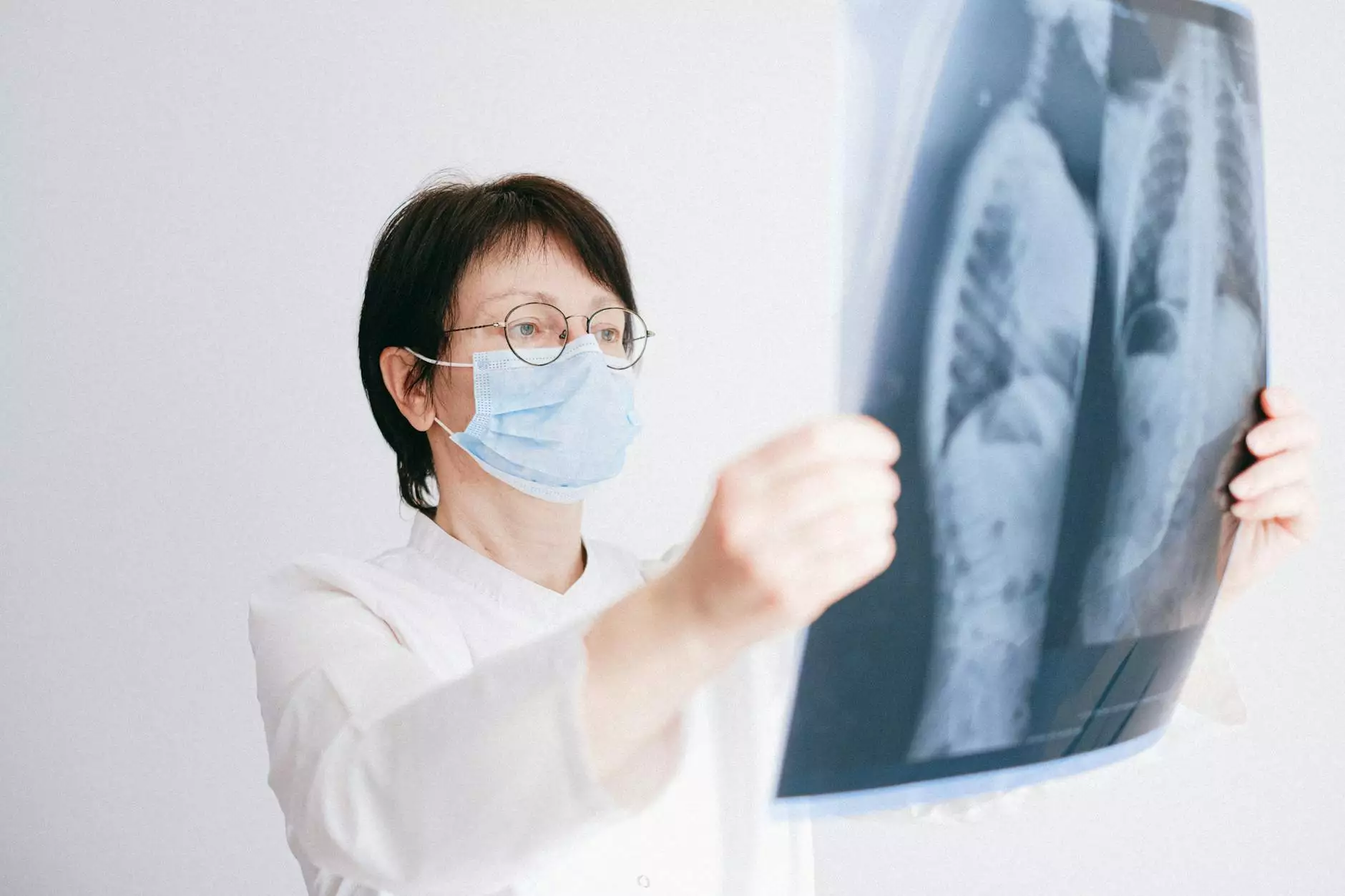Lung Specialist: Your Comprehensive Guide to Lung Health

The lungs are vital organs responsible for the exchange of oxygen and carbon dioxide, playing an essential role in our overall health. A lung specialist, also known as a pulmonologist, is a medical doctor who focuses on diagnosing and treating diseases of the respiratory system. This article will delve into the crucial work of lung specialists, the conditions they treat, and the importance of respiratory health.
Understanding the Role of a Lung Specialist
A lung specialist is trained to address a wide range of respiratory issues, from chronic obstructive pulmonary disease (COPD) to asthma, lung infections, and interstitial lung diseases. With their extensive training, which includes both internal medicine and specialized pulmonary medicine, lung specialists play a critical role in enhancing patient outcomes through tailored treatment plans.
Education and Training
To become a lung specialist, a doctor must complete the following steps:
- Medical School: Completing a four-year medical degree.
- Residency: Working in internal medicine for three years.
- Fellowship: Undergoing an additional two to three years focusing on pulmonary disease and critical care medicine.
This rigorous training equips lung specialists with profound knowledge of the respiratory system. They are adept at interpreting diagnostic tests, performing procedures, and managing complex cases related to lung health.
Common Conditions Treated by Lung Specialists
Lung specialists diagnose and manage various respiratory conditions, including but not limited to:
- Asthma: A chronic condition characterized by airway inflammation and constriction, leading to difficulty in breathing.
- Chronic Obstructive Pulmonary Disease (COPD): A progressive disease that includes emphysema and chronic bronchitis, primarily caused by smoking.
- Lung Infections: Such as pneumonia and tuberculosis, which can significantly affect lung function.
- Interstitial Lung Disease: A group of disorders causing progressive scarring of lung tissue.
- Lung Cancer: A serious condition requiring specialized knowledge for treatment and management.
Asthma Management: A Lung Specialist's Approach
Asthma affects millions of individuals worldwide and can be life-threatening if not managed correctly. A lung specialist employs a multi-faceted approach to asthma care:
- Diagnosis through pulmonary function tests and allergy testing.
- Medication management with inhalers, bronchodilators, and anti-inflammatory drugs.
- Education on avoiding triggers and developing an asthma action plan.
The Importance of Regular Check-Ups with a Lung Specialist
Regular consultations with a lung specialist are crucial for maintaining respiratory health, especially for individuals with chronic conditions. Early diagnosis and management can prevent the progression of diseases and improve quality of life.
Screening for Lung Health
Screening plays a pivotal role in respiratory health, particularly for individuals at risk of lung cancer or those who have chronic respiratory diseases. Methods include:
- Low-Dose CT Scans: Used for lung cancer screening in high-risk groups.
- Spirometry: A test that measures the amount of air a patient can inhale and exhale, helping diagnose asthma and COPD.
Lung Health and Lifestyle Choices
Maintaining lung health extends beyond visiting a lung specialist; lifestyle choices significantly impact respiratory well-being. Here are ways to promote optimal lung function:
- Avoid Smoking: Smoking is the leading cause of lung disease. Quitting can significantly enhance lung health.
- Exercise Regularly: Physical activity improves lung capacity and overall fitness.
- Healthy Diet: A balanced diet rich in antioxidants can combat oxidative stress in the lungs.
- Stay Hydrated: Proper hydration helps keep the mucous membranes in the lungs moist, aiding in respiratory function.
Environmental Considerations
Environmental factors can also impact lung health. It's essential to consider air quality, allergens, and pollution:
- Indoor Air Quality: Use air purifiers and avoid exposure to tobacco smoke, mold, and pet dander.
- Outdoor Air Quality: Stay informed about air pollution levels, especially on high ozone days.
Why Choose HelloPhysio as Your Go-To Resource for Lung Health
At HelloPhysio, we are committed to providing exceptional health and medical services that encompass sports medicine and physical therapy. Our team understands the importance of retaining optimal lung function for overall health and athletic performance.
Integrated Care Approach
Our integrated care model combines physical therapy with pulmonary rehabilitation, offering a comprehensive approach to lung health. We recognize that lung specialists not only treat lung ailments but also support patients in achieving their fitness and health goals. This holistic approach can significantly improve outcomes for individuals recovering from lung surgery, bronchitis, and asthma exacerbations.
Concluding Thoughts: The Future of Lung Health
As we look to the future, advances in medical technology and research will continue to refine how lung specialists diagnose and treat respiratory conditions. With the increasing prevalence of lung diseases, the role of the lung specialist will become even more critical in our healthcare system.
Incorporating preventive measures, patient education, and innovative treatments will shape how we approach lung health. Choosing to consult with a lung specialist at the right time can lead to better management of chronic conditions and enhance overall well-being.
Take Action Today for Better Lung Health
If you are experiencing any respiratory symptoms or have concerns about your lung health, don’t hesitate to reach out to a qualified lung specialist. At HelloPhysio, we are here to support you every step of the way.
Your lungs deserve the best care!









